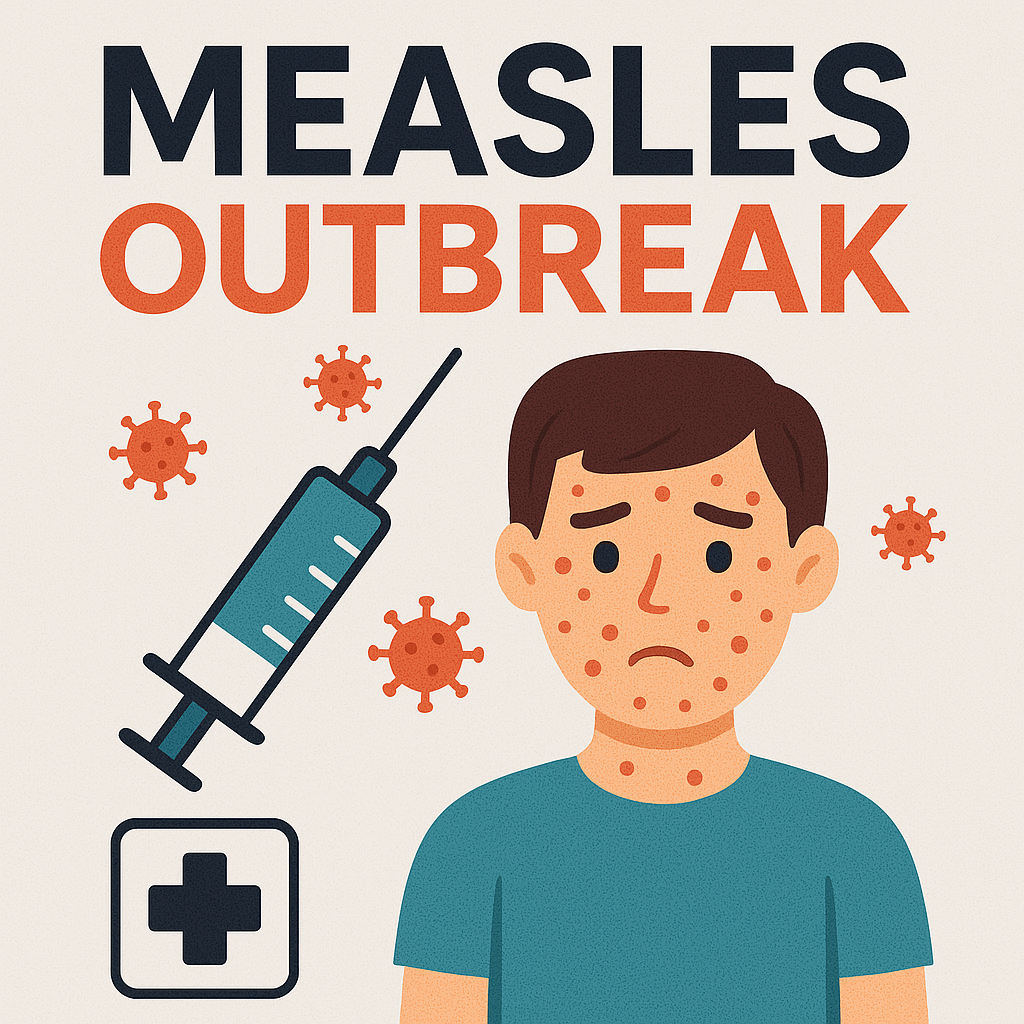Measles Outbreak in the Southwestern US
In recent weeks, a significant measles outbreak has emerged in the southwestern United States, affecting states including Texas, New Mexico, Oklahoma, and Kansas. As of April 2, 2025, there have been 504 confirmed cases, with Texas reporting the highest number at 422. This outbreak has resulted in two fatalities: a six-year-old child in Lubbock and an adult in New Mexico, both of whom were unvaccinated.

Understanding Measles
Measles is a highly contagious viral disease characterized by symptoms such as high fever, cough, runny nose, and a distinctive red rash. Complications can be severe, particularly in young children and immunocompromised individuals, potentially leading to pneumonia, encephalitis, and death. The disease is preventable through the measles, mumps, and rubella (MMR) vaccine, which has been instrumental in reducing global measles cases.
Factors Contributing to the Outbreak
Health officials attribute the resurgence of measles in part to declining vaccination rates. Vaccine hesitancy, fueled by misinformation and skepticism about vaccine safety, has led to decreased immunization coverage in certain communities, creating pockets of susceptibility where the virus can spread more easily.
Public Health Response
In response to the outbreak, public health authorities are implementing several measures:
- Vaccination Campaigns: Efforts are underway to increase MMR vaccination coverage, focusing on communities with low immunization rates.
- Public Awareness Initiatives: Educational programs aim to inform the public about the safety and efficacy of vaccines, addressing common misconceptions and emphasizing the importance of immunization.
- Quarantine and Isolation: Individuals diagnosed with measles are being isolated to prevent further transmission, and those exposed are advised to monitor for symptoms and seek medical advice.
Preventative Measures
To protect against measles, health experts recommend the following:
- Ensure Vaccination: Verify that you and your family members are up to date with the MMR vaccine. The Centers for Disease Control and Prevention (CDC) recommends two doses: the first at 12-15 months of age and the second at 4-6 years.
- Practice Good Hygiene: Regular handwashing, covering coughs and sneezes, and avoiding close contact with sick individuals can help reduce the spread of infectious diseases.
- Stay Informed: Keep abreast of local health advisories and reports on measles cases in your area.
The current measles outbreak in the southwestern United States underscores the critical importance of vaccination and public health vigilance. By ensuring high immunization rates and addressing vaccine hesitancy through education, communities can work together to prevent the resurgence of preventable diseases like measles.
